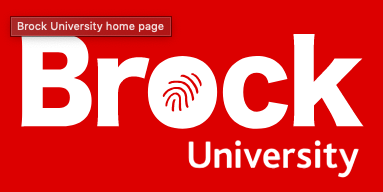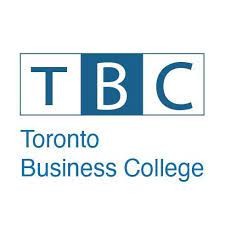Canada
Why Canada?
- Quality Education: Canada is recognized worldwide for our outstanding quality of education.
- Quality of Life: Canada ranks #1 in the world in quality of life.
- Affordable Costs: Canada is known for having some of the lowest tuition fees among popular English-speaking countries.
- Safe, Multi-cultural and Welcoming Society
- Ability to work part time (20h/week) while studying and full time during scheduled breaks
- Up to three-year Post-Graduation Work Permit (PGWP)
- Pathway to permanent residency: 2021: IRCC reported that 75% of PGWP holders became PR within 5 years after receiving it.
International Student Program:
The number of international students with active study permits in Canada rose to 1,040,985 in 2023, a 29% increase over 2022, following a 30% growth in 2022.
- In 2023: 52 % international students study in Ontario, 20% in British Columbia, 11% in Quebec
- 72.5% of international students plan to apply for a postgraduate work permit
- 60% of international students plan to apply for permanent residence in Canada
- International education accounts for $22.3 billion in economic activity annually, greater than Canada’s exports of auto parts, lumber or aircraft, and supports more than 200,000 jobs in Canada.
Recent changes to International Student Program
While international students have contributed to life on campuses across the country, they have also experienced some serious challenges navigating Canada’s International Student Program. Therefore, IRCC introduced measures aimed at strengthening Canada’s International Student Program:
- Starting Dec 1, 2023: Verification of Letter of Acceptance to better protect genuine students from fraud. (announced on Oct 27, 2023)
- Starting Jan 1, 2024, International students will need to show they have $20,635, in addition to their first year of tuition and travel costs. (announced on Dec 7, 2023)
IRCC Announcement on Jan 22, 2024 & Updates
- Net zero first year growth model: For 2024, IRCC will approve about 364,000 study permits (both new study permits and study permit extension)
- A total of about 552,000 study permit applications have been allocated to provinces and territories through the provincial attestation letter (PAL) system under the national cap. The distribution was based on the population share of each province and territory.
- Starting May 15, 2024, international students who begin a study program that is part of a curriculum licensing arrangement will no longer be eligible for a post-graduation work permit.
- Graduates of master’s degree programs are eligible to apply for a 3-year postgraduation work permit.
- Open work permits will only be available to spouses of international students in master’s and doctoral programs and particular professional degree programs at a university in the list.
Why Provincial Attestation Letters (PAL)?
- PALs will allow each Provinces and Territories to decide how permits are distributed across universities and colleges in their jurisdiction.
- Provinces and Territories will allocate PALs to areas and programs where there are sufficient labour market demands.
- This oversight will ensure that:
o There are jobs available for the graduates in their field of education.
o Institutions are following ethical and responsible recruitment practices.
Changes in Study Permit Applications
- A Letter of Acceptance: IRCC will verify with the Designated Learning Institution (as of Dec 3, 2023)
- A Provincial Attestation Letter (PAL) (as of Jan 22, 2024) – Some exceptions
- A Study plan/Letter of Intent/Cover letter
- Tuition fee payment receipt
- Financial documents: Minimum $20,635 (As of Jan 1, 2024, to be updated yearly)
- Medical Examination
- Police certificates
- Biometrics
Post-Graduation Work Permit (PGWP): Eligibility
- You have completed an academic, vocational or professional training program at an eligible DLI that is at least 8 months in duration leading to a degree, diploma or certificate.
- Graduates of programs under curriculum licensing agreements starting after Sep 1, 2024 will not be eligible for PGWP.
- You must maintain full-time status during all semesters, except for the final semester.
- You must not take any un-authorized leave.
- You must not take any leave that is longer than 150 days.
- You must apply for PGWP within 180 days after completing your program.
- You must hold valid temporary status in Canada or have left Canada.
Post-Graduation Work Permit (PGWP): Duration
- Programs have to be offered by eligible DLIs.
- If the program is less than 8 months → Not eligible for PGWP.
- If the program is from 8 months to 2 years → Duration of PGWP is the same as the duration of the program.
- PGWP is 3 years IF
o The program is 2 years or more.
o The program is a master’s program but is less than 2 years (as of Feb 15, 2024)
o The program is 2 years but compressed/accelerated in 3 semesters.
o You complete 1-year program & then another 1-year program.
- You can’t get another PGWP if you already had one. PGWP is issued once per lifetime.
Is Canada no longer welcoming international students?
On the contrary, Canada will be better prepared for international students.
- Students will be better protected against fraud. Verification of Letters of acceptance makes sure international students have a program to study after arriving in Canada.
- International students are better prepared financially for the costs of living in Canada.
- Communities will be better prepared to welcome international students in terms of housing, health care and employment.
- Reduction in number of international students means less competition, both in the short term and in the long run, for employment and PR pathways.
Is it more difficult to obtain a study permit to study in Canada?
In fact, there are little changes in how you apply for a study permit. Because:
- Verification of Letters of Acceptance (LoAs) is done between institutions and IRCC. Students or agencies are not involved.
- Apart from SDS students, most students applied for a study permit before have to prove they had more than $10,000 for living expenses for the first year, on top of tuition fees and travels.
- Institutions obtain Provincial Attestation Letters (PAL) for students. Students just receive PALs from the institutions and include it in the study permit applications.
Is there not enough PALs for international students?
Algonquin College has received our Provincial Attestation Letters (PALs) from the Ontario Ministry of Colleges and Universities and we are now issuing PALs for the September 2024 and Winter 2025 intakes.
What does this mean?
- Algonquin College is a college that has been recognized by the government for its responsible and ethical international recruitment practices and we will continue to grow our international student enrolment in 2024-2025
- We have seats – and PALs – available for Fall 2024 and Winter 2025 so apply as early as possible.
- We have seats in programs with high labour market demand in Ontario – i.e. skilled trades, IT, healthcare, and hospitality.
Is Canadian education no longer affordable?
- Tuition fee in Canada is $15-30,000/years, compared with average of 21,000 pounds per year in UK, US$16,000 - US$37,000 per year in the USA or 23,000 to 33,000 New Zealand dollars per year in New Zealand.
- Costs of living in Canada (#14) is still lower than Australia (#9) and New Zealand (#13) (www.worlddata.info)
- For Australia, as of 10 May 2024, primary applicants must show funds of at least AUS$29,710 (US$19,537), a 21% increase on the previous amount of AUS$24,505.
Is it impossible to obtain PR as an international graduate?
It is getting more competitive to become a permanent resident. But there are strategies to increase your chances. You can consider among the following:
- Consider a 3 or 4-year program
- Improve your English test scores
- Study French
- Study an online program to increase your education scores
- Consider a program in a high demand career – noting that this might change anytime
Express Entry: Pathway to Permanent Residency
Express Entry manages applications for 3 immigration programs:
- Federal Skilled Worker Program
- Federal Skilled Trades Program
- Canadian Experience Class
IRCC holds different types of rounds of invitations throughout the year:
1. General rounds of invitations: IRCC invites top-ranking candidates in the pool who are eligible for 1 of the 3 programs
2. Program-specific rounds of invitations: IRCC invites top-ranking candidates who are eligible for a specific Express Entry program, such as PNP
3. Category-based rounds of invitations: IRCC establishes a category to meet a specific economic goal. IRCC then invites top-ranking candidates in the pool who are eligible for this category.
Express Entry: CRS Scores of rounds of invitations from January to April 2024
Round Type | Number of invitation rounds | Invitation issued | CRS score ranges |
General | 9 | 14,445 | 524-549 |
French language proficiency | 4 | 12,400 | 336-410 |
STEM occupations | 1 | 4,500 | 491 |
Transport occupations | 1 | 975 | 430 |
Agriculture and agri-food occupations | 1 | 150 | 437 |
Healthcare occupations | 1 | 3,500 | 422 |











































